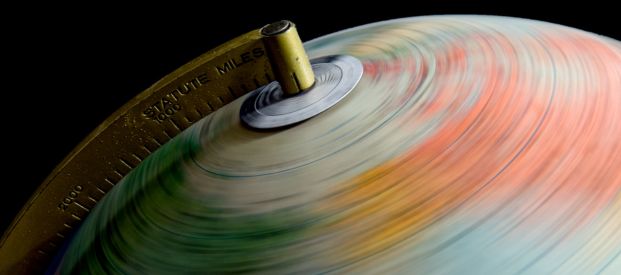The Earth is Spinning Faster! What Does This Mean and Should we be Worried?
 Have you ever found yourself saying that “time is flying by”? Well, it seems there is some truth in this, because scientists have discovered that the earth is spinning at a faster rate. What is causing this, you might ask? And how might it affect our everyday lives? Read on to find out more.
Have you ever found yourself saying that “time is flying by”? Well, it seems there is some truth in this, because scientists have discovered that the earth is spinning at a faster rate. What is causing this, you might ask? And how might it affect our everyday lives? Read on to find out more.
24 Little Hours
We are all accustomed to the fact that a day lasts for 24 hours, so it might surprise you to know that this hasn’t always been the case. If we go back in time, 600 million years ago, the average length of a day was 21 hours. This is the amount of time that it takes the earth to complete one rotation around its axis. However, every 100 years, the earth slows its rotation by 1.8 milliseconds. This means that the length of the days increases by 1.8 milliseconds every century.
In 2020, a remarkable discovery was made: the rotation of the earth is speeding up rather than slowing down. In fact, on 29 July 2022, scientists recorded the shortest day since tracking began: 1.59 milliseconds less than 24 hours. What’s more, the shortest 28 days on record all took place in 2020.
Changing Tides
So what is causing this phenomenon? The earth’s rotation is affected by many things, ranging from atmospheric changes to sea surface changes and tidal changes from the moon. The most popular theory in the scientific community is that the recent rotational change is due to the effects of the climate crisis, specifically the melting of glaciers. As the ice caps are melting at the north and south pole, they are exerting less pressure on the earth, causing it to change shape. Put simply, Earth is becoming rounder, and is therefore spinning faster. So, should we be worried about this change? And could it affect our daily lives?
Every Second Counts
For around 50 years now, a solution has been put in place to offset fluctuations in the rotational speed of the Earth. Since 1972, the International Telecommunication Union, the organisation which is in charge of defining time, has been adding occasional leap seconds to the years. Traditionally, these are added on 30 June or 31 December 31, just before the clock changes to midnight. This ensures that Coordinated Universal Time, the international time standard used around the world, is kept in sync with the earth’s rotation.
However, now that we know the planet is speeding up, it’s been postulated that we should start removing leap seconds instead of adding them. This has become the subject of a huge debate as it’s feared that the change could lead to massive technological disruption across the world. Computers, GPS satellites, smartphones and communication networks all rely on precise timing systems, so these could be negatively affected.
Technology companies such as Google and Meta (Facebook’s parent company) have called for the abolition of leap seconds as they argue that they can cause havoc in our modern, digital world.
At present, the debate continues, with the possibility that a leap second might eventually be removed for the first time in history. This unprecedented scenario has been likened to Y2K or the Millennium Bug, which raised fears of widespread technological disruption in the year 2000. Fortunately, these fears were unfounded, but could we be facing a similar situation now? Only time will tell.










